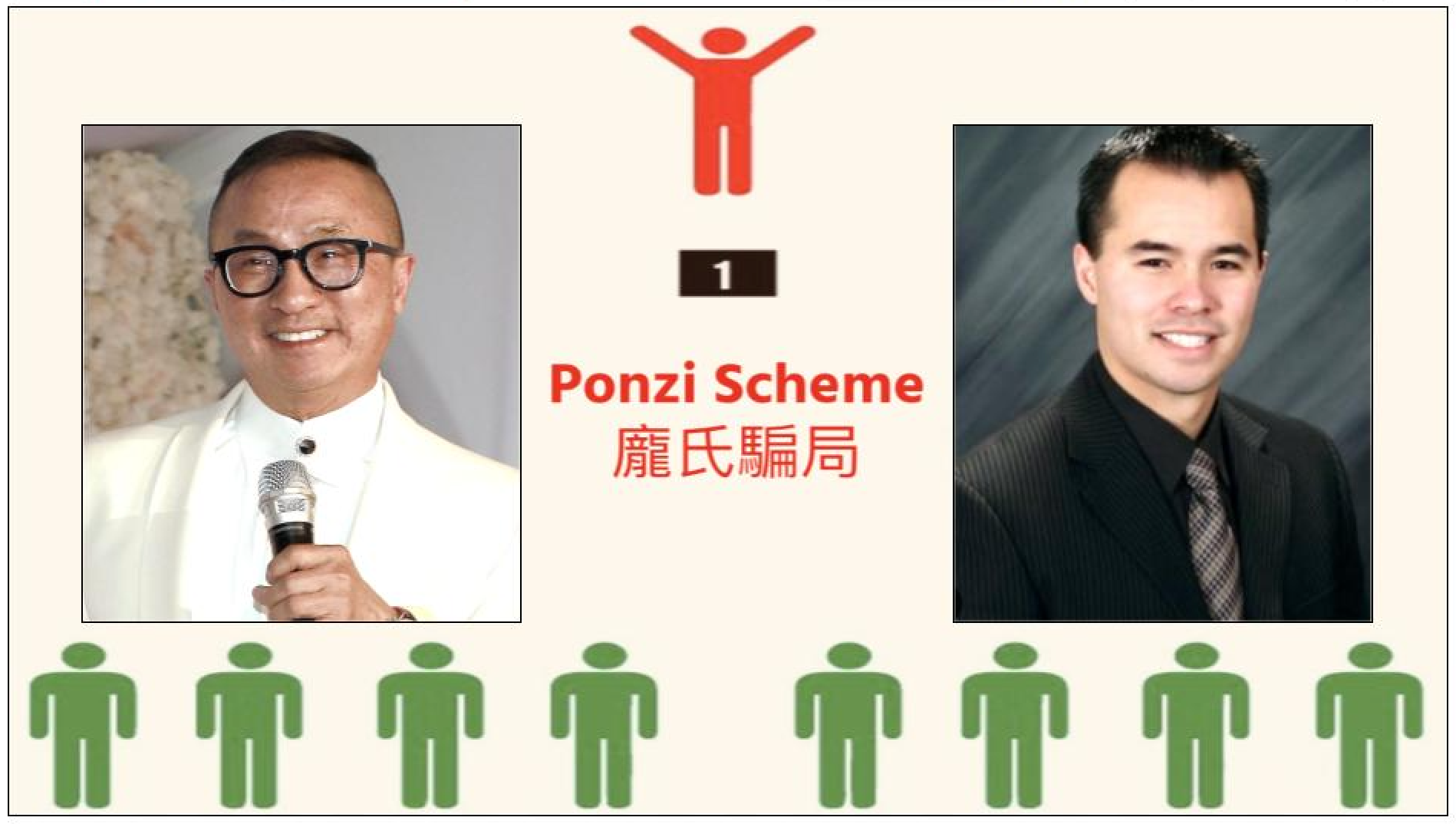IRS and law enforcement agencies announce an indictment for running an alleged $39 million Ponzi Scheme defrauding multiple victims from SF Chinatown


(SAN FRANCISCO) Internal Revenue Service (IRS) and law enforcement agencies announced an indictment last week against Derek Vincent Chu for running an alleged $39 million Ponzi Scheme defrauding over 100 victims, including multiple victims from San Francisco Chinatown.
It was a joint investigation by the IRS-Criminal Investigation, Federal Bureau of Investigations (FBI), and the San Francisco Police Department (SFPD). IRS is the leading agency to head the investigation on the case.
41-year-old Chu is a resident of Alamo over the East Bay. The federal indictment was returned and sealed on April 26. Chu was arrested on May 2 and the indictment was subsequently unsealed by the federal court after Chu was in custody.
According to the indictment, between late 2013 and 2020, Chu used several companies to raise $39 million by fraudulently soliciting investments in the purchase and resale of professional basketball tickets and luxury suites at the Oracle Arena in Oakland, the Staples Center in Los Angeles, and the Chase Center in San Francisco.
Chu was alleged to induce investors by making numerous materially false misrepresentations, including how the investor funds would be used, how investors would be repaid, and whether the investments were secured by collateral, said in the press release issued by the federal authorities.
The indictment further alleged that Chu commingled the investors’ money between his own personal accounts and his companies’ accounts, which resulted in investor money being used to repay other, earlier investors, and for other unrelated expenses.
Chu allegedly misappropriated and diverted more than $7.3 million of investor funds for his own personal benefit, which included paying credit card debts, making cash withdrawals, paying for travel, luxury automobile, jewelry purchases, and paying utilities bills.
Chu was indicted with eight counts of wire fraud, and three counts of money laundering.
Out of over 100 victims, a significant number of the victims were Chinese immigrants who were from San Francisco Chinatown.
Attorney Jaynry Mak, who represents about a dozen victims, spoke to the media about the scheme. She filed civil lawsuits on behalf of the victims against Chu and his father Felix Chu, an active member of the San Francisco Chinatown for several decades, for running an alleged fraudulent investment scheme and seeking compensation for monetary losses.
Mak also filed police reports with SFPD on behalf of the victims in 2019. SFPD later forwarded the complaints to the federal law enforcement agencies which led to the investigation.
According to the community members who knew Felix Chu, his wife is white and started working in the banking business in Chinatown decades ago. Felix Chu then later became an insurance agent and has been still active in Chinatown’s social events and family associations.
Feliz Chu, who speaks fluent English and Chinese, has been named as one of the best Masters of Ceremony (M.C.) in Chinatown and very popular among the Chinatown activists.
Since the pandemic in 2020, people who have known Felix Chu said that they have not seen him as often as before at Chinatown events.
A spokeswoman at the IRS-CI Office confirmed that Feliz Chu was not listed as a co-defendant in the latest criminal indictment against Derek Vincent Chu. The investigation is still ongoing.
The spokeswoman encouraged any victims who have not filed any complaints with the law enforcement agencies to come forward and contact them via the email at: USACAN.DCVictimAsst@usdoj.gov.
A Ponzi scheme is an investment fraud that pays existing investors with funds collected from new investors, according to the U. S. Securities and Exchange Commission (SEC) which provides details on the operations of Ponzi schemes on its website: www.investor.gov.
Ponzi schemes exist in all ethnic communities across the nation. The Ponzi Scheme organizers would often promise to invest your money and generate high returns with little or no risk. But in many Ponzi schemes, the fraudsters do not invest the money. Instead, they use it to pay those who invested earlier and may keep some for themselves.
With little or no legitimate earnings, Ponzi schemes require a constant flow of new money to survive. When it becomes hard to recruit new investors, or when large numbers of existing investors cash out, these schemes tend to collapse, according to SEC.
Ponzi schemes are named after Charles Ponzi, who duped investors in the 1920s with a postage stamp speculation scheme.
The SEC’s Office of Investor Education and Advocacy (OIEA) and Retail Strategy Task Force are warning investors about Ponzi schemes that prey on senior investors. The SEC has brought enforcement actions involving Ponzi schemes aimed at seniors. The public may call OIEA at 1-800-732-0330, or email to Help@SEC.gov, for more information related to any Ponzi schemes.
- Opinion: Joel Engardio betrayed District 4
- Local organizations co-host “Sunset After Dark” on September 26 filling in for Sunset Night Market
- An eyewitness account: Asian American women’s fear of hate violence in San Francisco
- A new wave of anti-Asian assaults in San Francisco targets young Asian women who were dragged by their hair
- 2025 winning artworks in Children’s Art Contest to celebrate Asian heritage in public view at Portsmouth Square Garage Gallery
- Opinion: Being “nice” isn’t enough — the Sunset deserves real leadership
- Asian American police leaders promoted under reorganization by SFPD Interim Chief Yep
- Opinion: Portsmouth Square pedestrian bridge has been a valuable, precious and enormous open space for Chinatown for over 50 years







